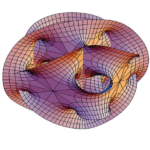ULTIMI ARGOMENTI - Vedi in questa pagina, qui sotto
LAST TOPICS - See on this page, below.
EFNMS-European Federation of National Maintenance Societies and Salvetti Foundation Awards 2024 - Rimini 16-18.9.2024
Next Euromaintenance 2026 - Göteborg (Sweden) - March 10-11, 2026

1.10.2024
DALLA PROFESSIONE ALLA MISSIONE
Non abbiamo né ritrosie né difficoltà a parlare di manutenzione in una congiuntura di attualità catastrofiche.
Le guerre e le disuguaglianze sociali, mentre l’inquinamento della natura si fa più grave, devono far emergere da parte di tutti coscienza e volontà di miglioramento. E di maggior cura del nostro patrimonio ecologico, nonché dei nostri asset economico-industriali.
Gestire un impianto non è solo un fatto tecnico. Per guidare un tram non basta saper fare le manovre. Occorre conoscere i motori delle cose e conoscere regole e insidie della circolazione. Essere consapevoli delle finalità di un’azione, conoscerne le conseguenze ed esserne responsabili. Il mondo per un conducente di tram non è solo il suo tram.
Ecco, come ha indicato il nostro Presidente Stefano Salvetti al Meeting di Euromaintenance a Rimini il mese scorso, che la professione diventa una missione. Lavoro sostenibile e responsabile, con la condivisione della socialità.
Così questo mese terremo da conto sia il Rapporto Draghi all’Unione Europea, sia il Patto per il Futuro presentato alle Nazioni Unite. Sono due documenti di peso, carichi di dati importanti, di analisi sensibili, di preziosi consigli e proposte. Tra gli elogi sono già spuntate anche le critiche. Ben vengano, ma restino accesi i riflettori sulla necessità di uno sviluppo economico e civile sostenibile per tutti gli umani.
Paolo Lutteri
+++
FROM PROFESSION TO MISSION
We have neither reluctance nor difficulty in talking about maintenance in a situation of catastrophic current events.
Wars and social inequalities, while the pollution of nature becomes more serious, must bring out in everyone awareness and will to improve. And to take greater care of our ecological heritage, as well as our economic-industrial assets.
Managing a plant is not just a technical fact. To drive a tram, it is not enough to know how to maneuver. You need to know the engines of things and know the rules and pitfalls of circulation. Be aware of the purposes of an action, know its consequences and be responsible for it. The world for a tram driver is not just his tram.
Here, as our President Stefano Salvetti indicated at the Euromaintenance Meeting in Rimini last month, the profession becomes a mission. Sustainable and responsible work, with the sharing of sociality.
So this month we will take into account both the Draghi Report to the European Union and the Pact for the Future presented to the United Nations. They are two weighty documents, full of important data, sensitive analysis, precious advice and proposals. Among the praises, criticisms have already emerged. They are welcome, but the spotlight must remain on the need for sustainable economic and civil development for all humans.
Paolo Lutteri
************************
FLASH

Si è svolto a New York il vertice promosso dal segretario generale delle Nazioni unite per rafforzare il multilateralismo e adottare il Patto per il futuro. I leader mondiali hanno adottato il Patto per il futuro per consenso: un'opportunità irripetibile per reimmaginare il sistema multilaterale e guidare l'umanità su una nuova rotta per rispettare gli impegni esistenti e risolvere le sfide a lungo termine. Questo patto si concentra su un’azione intergovernativa ambiziosa per promuovere un futuro orientato all’azione e ai risultati. È composto da cinque sezioni principali: sviluppo sostenibile e finanziamento dello sviluppo, pace e sicurezza internazionale, scienza, tecnologia e innovazione e cooperazione digitale, giovani e generazioni future, e trasformazione della governance globale. L’obiettivo è creare un impegno concreto e misurabile per affrontare questioni globali garantendo un futuro più equo e sostenibile: riaffermare la Carta delle Nazioni Unite, rivitalizzare il multilateralismo, potenziare l’attuazione degli impegni esistenti, concordare soluzioni a nuove sfide, e restaurare la fiducia.
https://www.un.org/en/summit-of-the-future
+++
The Summit promoted by the Secretary-General of the United Nations to strengthen multilateralism and adopt the Pact for the Future took place in New York. World leaders adopted the Pact for the Future by consensus: a once-in-a-generation opportunity to reimagine the multilateral system and lead humanity on a new course to meet existing commitments and solve long-term challenges. This compact focuses on ambitious intergovernmental action to promote an action-oriented and results-oriented future. It is composed of five main sections: sustainable development and financing for development, international peace and security, science, technology and innovation and digital cooperation, youth and future generations, and transforming global governance. The aim is to create a concrete and measurable commitment to address global issues ensuring a more equitable and sustainable future: reaffirming the United Nations Charter, revitalizing multilateralism, strengthening the implementation of existing commitments, agreeing solutions to new challenges, and restoring trust.

Europe's strong system of rights and values offers equal opportunities and leads the way in social inclusion. Our institutions, economic frameworks, and commitment to the rule of law create an environment where businesses can thrive and people can prosper. Top-notch infrastructure and a skilled workforce give Europe its competitive edge. In a changing world with new challenges, the European Union is focused on staying competitive and prosperous. We're working hard to maintain our leadership globally and to make sure we have control over our own future. Therefore Europe needs to look further ahead and set out how to remain competitive. This is why Mario Draghi – former European Central Bank President and one of Europe's great economic minds – was tasked by the European Commission to prepare a report of his personal vision on the future of European competitiveness.
https://commission.europa.eu/topics/strengthening-european-competitiveness/eu-competitiveness-looking-ahead_en#paragraph_47059
+++
Il futuro della competitività europea (Rapporto Draghi)
Il solido sistema di diritti e valori dell'Europa offre pari opportunità e apre la strada all'inclusione sociale. Le nostre istituzioni, i quadri economici e l'impegno per lo stato di diritto creano un ambiente in cui le aziende possono prosperare e le persone possono prosperare. Infrastrutture di prim'ordine e una forza lavoro qualificata conferiscono all'Europa il suo vantaggio competitivo. In un mondo in continua evoluzione con nuove sfide, l'Unione europea è concentrata sul rimanere competitiva e prospera. Stiamo lavorando duramente per mantenere la nostra leadership a livello globale e per assicurarci di avere il controllo sul nostro futuro. Pertanto l'Europa deve guardare più avanti e stabilire come rimanere competitiva. Questo è il motivo per cui Mario Draghi, ex Presidente della Banca centrale europea e una delle grandi menti economiche europee, è stato incaricato dalla Commissione europea di preparare un rapporto sulla sua visione personale sul futuro della competitività europea.
**********************************************

ULTIMI DOCUMENTI PUBBLICATI / LATEST DOCUMENTS ONLINE ON THE SITE
.
Media News: 17.10.2024 = Orizzonte sostenibile - Paolo Lutteri
Media News: 10.10.2024 = Progresso così-così - Paolo Lutteri
Media News: 3.10.2024 = Mare mosso - Paolo Lutteri
Gallery: 3.10.2024 = Fiscal policy challenges/Sfide di politica fiscale - World Economic Forum (25.9.2024)
Report 2024: 3.10.2024 = Chief Economists Outlook- World Economic Forum (25.9.2024)
Home Page: 1.10.2024 = Dalla professione alla missione.
Media News: 26.9.2024 = Il Concilio dei Governi - Paolo Lutteri.
Flash: 22-23.9.2024 = Summit del Futuro – Patto per il futuro - United Nations.
Media News: 19.9.2024 = Fenice o agonia? - Paolo Lutteri.
Euromaintenance &Awards: 16.18.9.2024 = Euromaintenance 2024 – Rimini.
Flash: 16.9.2024 = Trend McKinsey - Michelle Crisantemi (Innovation Post)
Media News: 12.9.2024 = Democrazia e diversità. - Paolo Lutteri
Report 2024: 9.9.2024 = The future of European competitiveness - European Commission by Mario Draghi.
Flash: 9.9.2024 = The future of European competitiveness - Draghi Report.
Media News: 5.9.2024 = Dietro il diamante rosso. Paolo Lutteri
Fast-Eucys & Awards: 3.9.2024 = Sfida europea per sei geni/European Challenge for Six Geniuses - FAST
Flash: 1.9.2024 = EFNMS-European Federation of National Maintenance Societies
Flash: 1.9.2024 = Sfide e priorità dell'UE / EU Challenges and Priorities - Commissione europea (15.8.2024)
Flash: 1.9.2024 = Rischi dell’Intelligenza Artificiale/Risks of Artificial Intelligence – NYTimes Technology.
Flash: 1.9.2024 = Vita aliena su Marte/Alien life on Mars – BBC Innovation.
Homepage collection: 1.9.2024 = Formaggio con i buchi / Cheese with holes – Paolo Lutteri.
Come una biblioteca, le pagine di questo sito vogliono contribuire allo sviluppo sostenibile della società umana, offrendo strumenti di conoscenza e di formazione tecnologica e scientifica per contribuire al progresso e per la cultura della migliore manutenzione della produzione industriale e dei servizi commerciali.
-
Like a library, the pages of this website want to contribute to the sustainable development of human society, offering tools for knowledge and technological and scientific education, in order to support the progress and culture of the best maintenance of industrial production and commercial services.

